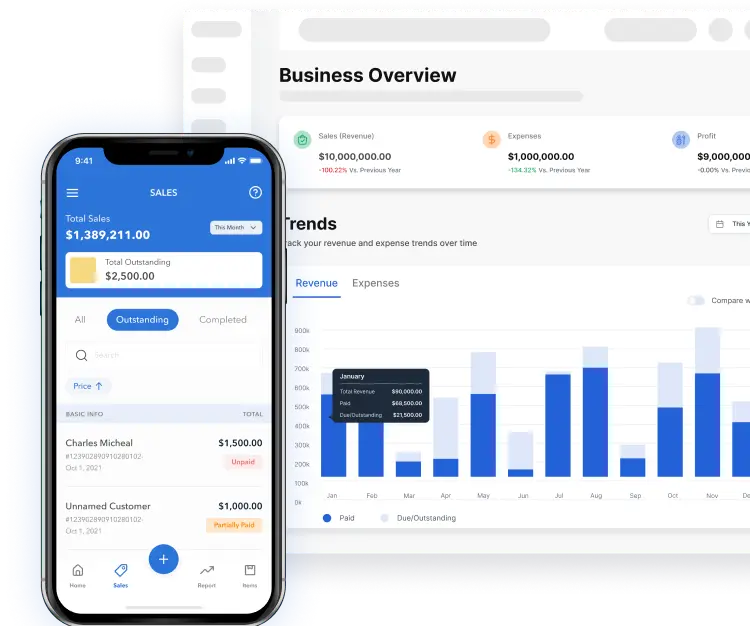When it comes to managing your business’s financial records, choosing the right accounting method is crucial. The two most commonly used methods are cash basis accounting and accrual basis accounting. Each has its own set of benefits, limitations, and implications for your financial reporting and decision-making process.
In this blog, we’ll take a deep dive into both accounting methods, comparing them in terms of how transactions are recorded, which businesses typically use each method, and which one might be the best fit for your company. By the end, you should have a clear understanding of these two accounting systems and which one to choose for your business.
What is Cash Basis Accounting?

Cash basis accounting is a simple method where transactions are recorded when cash changes hands. Revenue is recognized only when payment is received, and expenses are recorded when they are paid, not when they are incurred.
Example of Cash Basis Accounting:
Suppose a business sells a product for $1,000 on September 1, but the customer pays for the product on October 1. Under cash basis accounting, the revenue will only be recorded in October, when the payment is received, even though the sale was completed in September.
Similarly, if a business purchases inventory on credit in July but doesn’t pay the supplier until August, the expense would only be recognized in August when the actual payment is made.
Advantages of Cash Basis Accounting:
1. Simplicity
Cash basis accounting is straightforward to manage, which is why many small businesses and sole proprietors prefer this method. You only need to record transactions when cash is involved, which makes it easier for business owners to understand their cash flow.
2. Clear Picture of Cash Flow
For businesses that rely heavily on cash transactions, such as small retail shops or service-based businesses, this method helps them track how much cash is available at any given time. It also simplifies tax preparation since revenue is taxed only when it is received, and deductions are made only when payments are made.
3. Tax Benefits for Small Businesses
For small businesses, cash basis accounting can provide tax advantages. Because income is recorded when it’s received, rather than when it’s earned, business owners can defer income to reduce their taxable income in the current year. For example, if a customer makes a large payment at the end of the year, recording it the next year could delay taxes owed.
Disadvantages of Cash Basis Accounting:
1. Inaccurate Financial Picture
While cash basis accounting provides a clear picture of available cash, it doesn’t necessarily offer an accurate snapshot of the business’s overall financial health. For businesses that deal in credit sales or make credit purchases, important transactions might not be captured until much later.
2. Delayed Revenue and Expense Recognition
In cash basis accounting, there can be a significant delay between when a transaction takes place and when it’s recorded. This can result in misleading financial reports, making it hard for management to make informed decisions on current activities.
3. Limited to Small Businesses
Most large businesses and corporations are not allowed to use cash basis accounting due to regulatory requirements. If a company’s annual gross revenue exceeds $25 million, the IRS mandates that the business use accrual basis accounting.
What is Accrual Basis Accounting?

Accrual basis accounting is a more sophisticated method where transactions are recorded when they are incurred, regardless of when cash is exchanged. Revenue is recognized when earned, and expenses when incurred, even if cash hasn’t been received or paid.
Example of Accrual Basis Accounting:
Let’s revisit the earlier example: a business sells a product for $1,000 on September 1, and the customer pays on October 1. Under the accrual method, the revenue would be recorded in September, when the sale took place, even though the cash was received later in October.
Similarly, expenses are recorded when they are incurred. If a company buys inventory in July, the expense is recognized then, not when payment is made in August.
Advantages of Accrual Basis Accounting:
1. Accurate Financial Picture
Accrual basis accounting provides a more accurate and comprehensive view of a company’s financial position. By matching revenues with expenses, businesses can assess their performance more accurately over time. This method is ideal for companies with a mix of cash and credit transactions, as it reflects both current and future obligations.
2. Compliance with GAAP
The Generally Accepted Accounting Principles (GAAP) require companies to use the accrual method for financial reporting. This ensures that financial statements accurately reflect a company’s performance and financial health. Many investors and creditors prefer accrual-based financial statements because they offer a clearer understanding of the company’s operations.
3. Better for Long-Term Planning
Accrual accounting provides a clearer picture of long-term profitability and financial sustainability. Since revenues and expenses are recorded when they are earned or incurred, business owners can more easily predict future cash flows and budget accordingly.
4. IRS Requirements for Larger Businesses
As mentioned earlier, if your business is a corporation with gross receipts exceeding $25 million, the IRS requires you to use the accrual method of accounting. Even smaller businesses that hold inventory must use the accrual method to account for their inventory purchases and sales.
Disadvantages of Accrual Basis Accounting:
1. Complexity
Accrual accounting requires more time and effort to maintain accurate records. Businesses must track cash and non-cash transactions as revenue and expenses are recorded when earned or incurred. This often requires a more detailed accounting system and the assistance of an accountant or financial professional.
2. Cash Flow Management
One of the challenges with accrual basis accounting is that it doesn’t always align with cash flow. For example, a company might record significant revenue in a month but not receive payment until a later date. A company may appear profitable on paper but struggle to pay bills due to delayed cash receipts.
3. Tax Complexity
Under the accrual method, businesses must pay taxes on revenue that has been earned, even if they haven’t received the actual cash yet. This can complicate tax planning for companies that operate on tight cash flows, as they may need to find ways to cover tax liabilities without having the corresponding cash on hand.
Cash Basis Accounting vs. Accrual Basis Accounting: A Comparison

| Aspect | Cash Basis Accounting | Accrual Basis Accounting |
|---|---|---|
| Revenue Recognition | Recorded when cash is received | Recorded when revenue is earned |
| Expense Recognition | Recorded when cash is paid | Recorded when expenses are incurred |
| Complexity | Simple and easy to implement | More complex and requires detailed tracking |
| Financial Accuracy | May not provide an accurate picture of financial health | Provides a more accurate picture of financial performance |
| IRS Compliance | Typically used by small businesses | Required for corporations with gross receipts over $25 million |
| Use Case | Ideal for sole proprietors and small businesses | Best for larger businesses, especially those with credit transactions |
Which Method Should You Choose?
The decision between cash basis accounting and accrual basis accounting ultimately depends on the size, nature, and structure of your business.
1. Small Businesses and Sole Proprietors
If you run a small business with straightforward cash transactions and don’t deal with credit sales, cash basis accounting may be a good fit. It’s simple to implement, easy to manage, and offers a clear view of available cash.
2. Growing Businesses and Corporations
For larger businesses or those that deal with complex transactions, accrual basis accounting is the better choice. It provides a more accurate representation of financial health, ensures compliance with tax regulations, and supports long-term financial planning. Additionally, if your business has inventory or deals with significant credit transactions, accrual accounting will give you a clearer view of profits and expenses.
Conclusion
Both cash basis and accrual basis accounting have their pros and cons. Cash basis accounting is easier to manage and is suitable for smaller businesses that primarily deal with cash transactions. Accrual-based accounting offers a clearer financial picture, ideal for growing companies and businesses with credit sales.
Ultimately, the choice between these two methods will depend on your business’s financial needs and long-term goals. If your business is small and you’re looking for simplicity, cash basis accounting may be the way to go. However, if you want a more comprehensive view of your financial health and plan to grow your business, accrual basis accounting is a better option.
Whichever method you choose, maintaining accurate financial records is key to the success of your business.
Related Content






